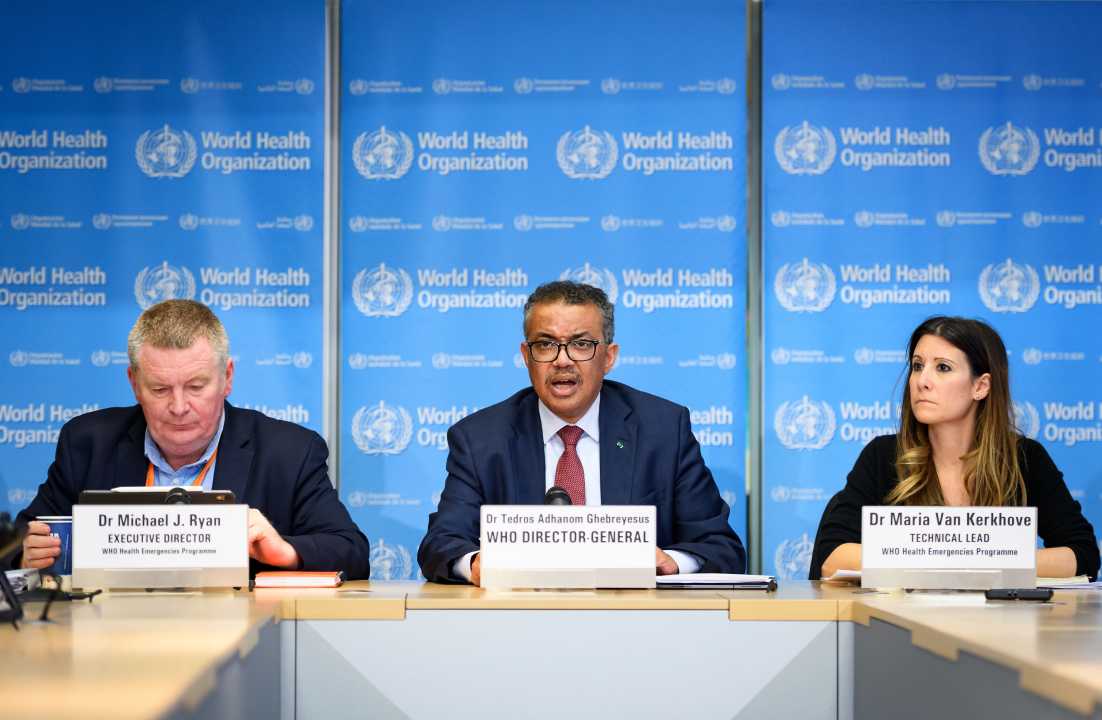Health
Monkeypox Declared Global Health Emergency

The World Health Organization (WHO) has announced that the monkeypox outbreak affecting several African countries is now considered an international public health emergency.
This decision was made unanimously by a WHO emergency committee that is worried a more deadly and transmissible strain of the virus, also known as Monkeypox, has spread to areas in Africa that were previously unaffected.
Just recently, the African Centers for Disease Control and Prevention declared that the outbreak constitutes a public health emergency after recording 15,000 cases and 461 deaths from the virus in just 2024. This marks a dramatic increase of 160% in diagnoses and a 19% increase in deaths compared to the same time last year.
“The rapid detection and spread of a new clade (variant) of Mpox in Eastern DR Congo and its detection in neighboring countries that have yet to report it is very concerning,” said WHO Director-General Tedros Adhanom Ghebreyesus during a press conference on Wednesday. He added that an international coordinated response is essential to stop this outbreak and save lives.
The majority of cases are focused in the Democratic Republic of the Congo, but cases have also been detected in neighboring countries such as Burundi, Uganda, Kenya, and Rwanda.
The new variant, known as clade 1b, is seen as more dangerous than the strains that triggered an international alert from the WHO in 2022 until May 2023.
Declaring an international emergency means countries worldwide must take action to prevent the virus from spreading according to international health regulations.
The Mpox virus is part of the orthopoxvirus family and was first detected in humans in 1970 in the Democratic Republic of the Congo. It is considered endemic in some West and Central African countries.
Symptoms of monkeypox are similar to those of smallpox, but generally less severe. They start with fever, headaches, muscle aches, chills, and fatigue. The main difference between the symptoms of smallpox and monkeypox is that the latter causes lymphadenopathy, or swelling of the lymph nodes, which does not occur with smallpox.
An itchy, painful rash typically begins on the face and spreads to other body parts, especially the hands and feet. Over time, the rash changes, going through several stages before crusting over and falling off.
Most monkeypox cases are mild and resolve within a few weeks, but some cases can be much more serious and lead to death. Typically, after infection, it takes about 5 to 21 days for the first symptoms to appear.
At first, symptoms often resemble the flu, including fever, headaches, muscle aches, backaches, chills, exhaustion, and swelling of the lymph nodes. It’s crucial to monitor symptom onset since the Mpox virus, unlike the COVID virus, does not spread before symptoms appear.
Transmission can happen not just through sexual contact but also through various means, such as contact with clothes worn by an infected person or direct contact with lesions or scabs on an infected person’s skin, as well as through coughing or sneezing.
The British Health Security Agency notes there are two vaccines against smallpox recommended by the WHO and approved by health authorities in several countries.
Meanwhile, the Swedish Public Health Agency confirmed on August 15 that a person had been infected during a visit to a region in Africa where there’s a significant monkeypox outbreak of the clade 1 subtype. They are receiving appropriate care according to regulations.
The European Centre for Disease Prevention and Control currently assesses the risk as very low and emphasizes that the situation is being monitored closely.
The ongoing outbreak in the Democratic Republic of the Congo is primarily characterized by a more contagious and dangerous virus caused by clade 1 and its even more dangerous variant, clade 1b, which has a mortality rate estimated at 3.6%.
For the WHO, other imported monkeypox cases are likely to be detected soon in Europe. It is expected that more imported cases of clade 1 will be reported in the European region in the upcoming days and weeks.
The WHO urges not to stigmatize travelers or the regions affected, emphasizing that only by working together, sharing data, and taking the necessary public health measures can we control the spread of this virus.












